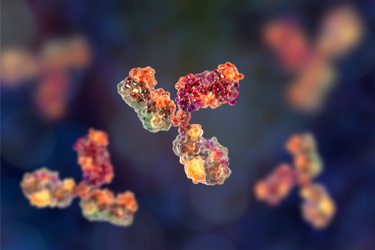Hybridoma Technologies For Antibody Discovery

Hybridoma technology offers a robust approach for generating highly specific monoclonal antibodies (mAbs). It entails in vivo immunization of animals, typically rodents, with a target antigen. Splenocytes, harboring B cells that produce antigen-specific antibodies, are subsequently fused with immortal myeloma cells. This cell fusion results in hybridomas, capable of both antibody production and continuous proliferation. Stringent selection using HAT medium eliminates unfused cells, while screening techniques identify hybridomas producing the desired mAbs. Single-cell cloning establishes pure mAb-producing hybridoma cell lines.
While the core concept remains unchanged, advancements include platforms utilizing genetically modified mice expressing human antibody regions. These platforms offer broader antibody repertoires, potentially leading to mAbs with superior drug-like properties such as high affinity, specificity, and manufacturability. Importantly, fully human antibody regions minimize the risk of immunogenicity, a critical factor for therapeutic applications.
Conventional hybridoma approaches often employ limited mouse strains, potentially hindering antibody discovery. Curia's PentaMice platform addresses this by incorporating five distinct mouse strains encompassing a wider MHC repertoire. This broadened genetic diversity enhances the immune response, increasing the probability of identifying high-quality antibodies in vivo.
Explore how Curia's hybridoma technology offers a reliable method for generating novel therapeutic and diagnostic mAbs.
Get unlimited access to:
Enter your credentials below to log in. Not yet a member of Drug Discovery Online? Subscribe today.
